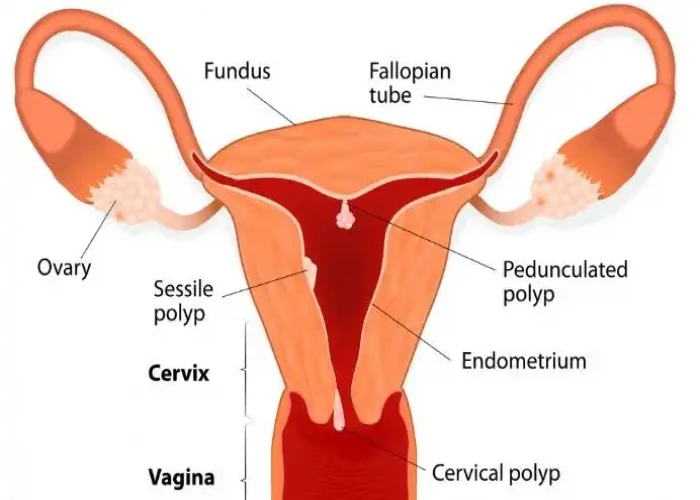 Welcome
Welcome
“May all be happy, may all be healed, may all be at peace and may no one ever suffer."
Uterine polyps
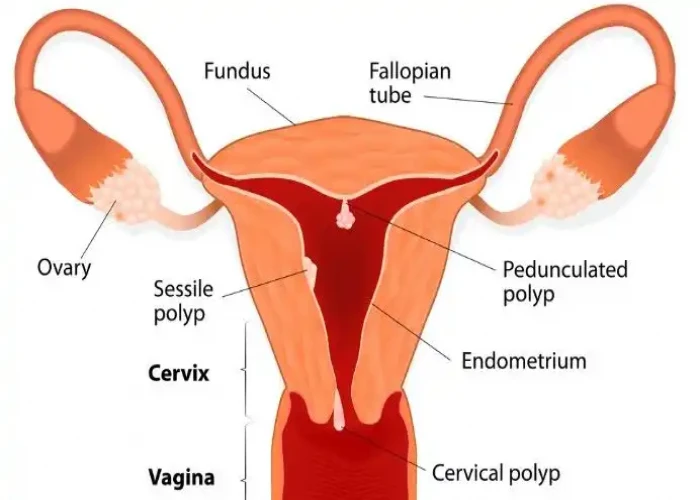
Uterine polyps are growths that develop in the lining of the uterus. They are typically non-cancerous and can range in size from a few millimeters to several centimeters. Uterine polyps are more common in women who have gone through menopause, but they can occur in women of any age.
The cause of uterine polyps is not well understood, but they are thought to be related to an overgrowth of cells in the endometrial lining of the uterus. Risk factors for developing uterine polyps include obesity, hypertension, and taking tamoxifen, a medication used to treat breast cancer.
Symptoms of uterine polyps can include irregular menstrual bleeding, heavy bleeding during periods, bleeding after menopause, and infertility. In some cases, uterine polyps may not cause any symptoms at all.
Diagnosis of uterine polyps typically involves a pelvic exam, ultrasound, or other imaging tests such as hysteroscopy, which involves using a thin, lighted tube to examine the inside of the uterus. Treatment options for uterine polyps may include medications to control symptoms, such as pain or heavy bleeding, or surgical options such as hysteroscopic polypectomy, which involves removing the polyps while leaving the uterus intact.
The prognosis for uterine polyps is generally good, as they are typically non-cancerous and do not increase the risk of developing uterine cancer. However, if polyps are causing severe symptoms or affecting a woman's quality of life, it is important to discuss treatment options with a healthcare provider.
Research Papers
Disease Signs and Symptoms
- Painful menstrual periods
- Heavy menstrual period or bleeding
- Infertility
- Absent or irregular menstrual periods
Disease Causes
Disease Prevents
Disease Treatments
For uterine polyps, your doctor might recommend:
- Watchful waiting. Small polyps without symptoms might resolve on their own. Treatment of small polyps is unnecessary unless you're at risk of uterine cancer.
- Medication. Certain hormonal medications, including progestins and gonadotropin-releasing hormone agonists, may lessen symptoms of the polyp. But taking such medications is usually a short-term solution at best — symptoms typically recur once you stop taking the medicine.
- Surgical removal. During hysteroscopy, instruments inserted through the hysteroscope — the device your doctor uses to see inside your uterus — make it possible to remove polyps. The removed polyp will likely be sent to a lab for microscopic examination.
If a uterine polyp contains cancerous cells, your doctor will talk with you about the next steps in evaluation and treatment.
Rarely, uterine polyps can recur. If they do, you might need more treatment.
Disease Diagnoses
Disease Allopathic Generics
Disease Ayurvedic Generics
Disease Homeopathic Generics
-
Calcarea iodata
2X strength.
-
Thlaspi bursa pastoris
2X strength.
-
Carcinosinum (Carcinosin)
30, 200 strength.
-
Thuja occidentalis
30 strength.
-
Ruta graveolens
Q strength.
-
Aurum muriaticum natronatum
2X, 3X strength.
-
Carcinosinum (Carcinosin)
30, 200 strength.
-
Calcarea iodata
2X strength.
-
Arsenicum iodatum
2X strength.
-
Thuja occidentalis
30 strength.
-
Silicea
6X strength.
-
Hydrastis
Q strength.
Disease yoga
Uterine polyps and Learn More about Diseases
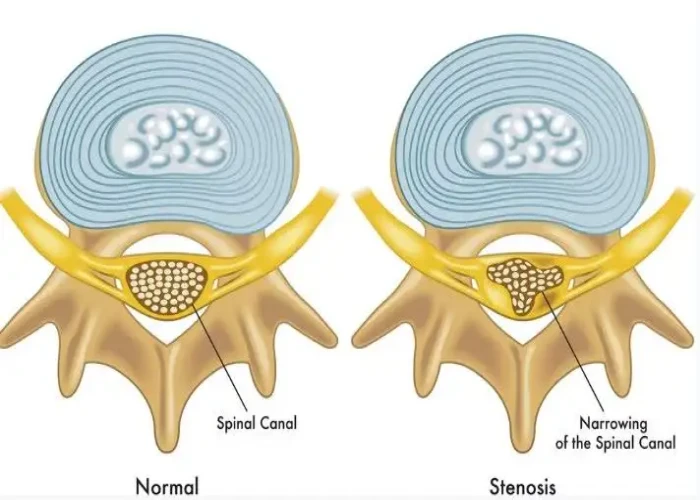
Spinal stenosis

Leprosy

Bladder exstrophy

Greenstick fractures
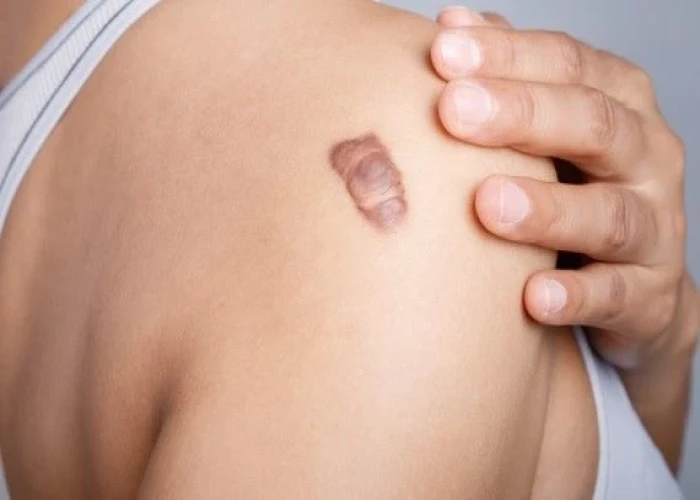
Keloid scar
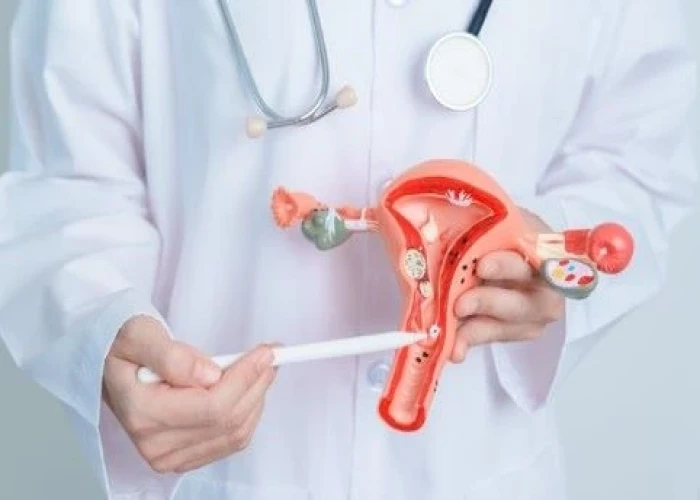
Perimenopause
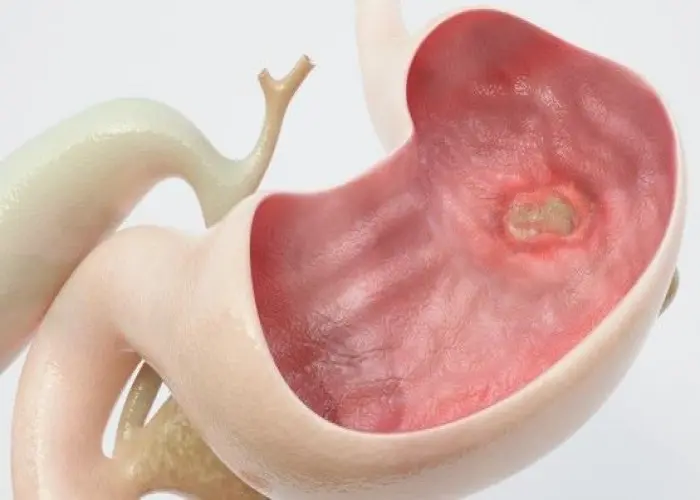
Gastric Ulcer
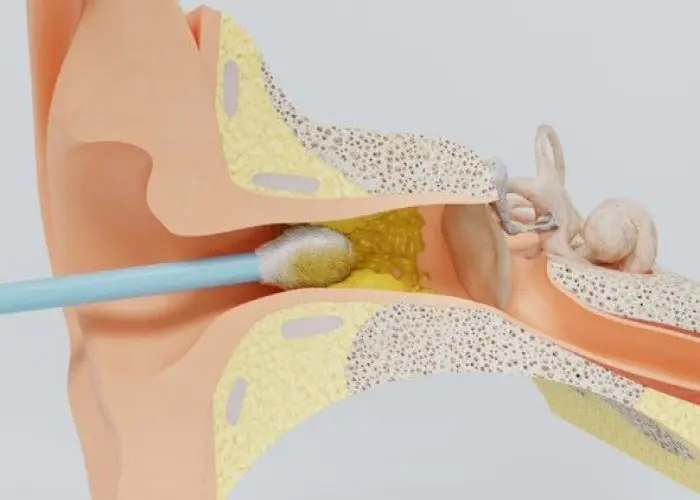
Earwax blockage
uterine polyps, জরায়ু পলিপস
To be happy, beautiful, healthy, wealthy, hale and long-lived stay with DM3S.
